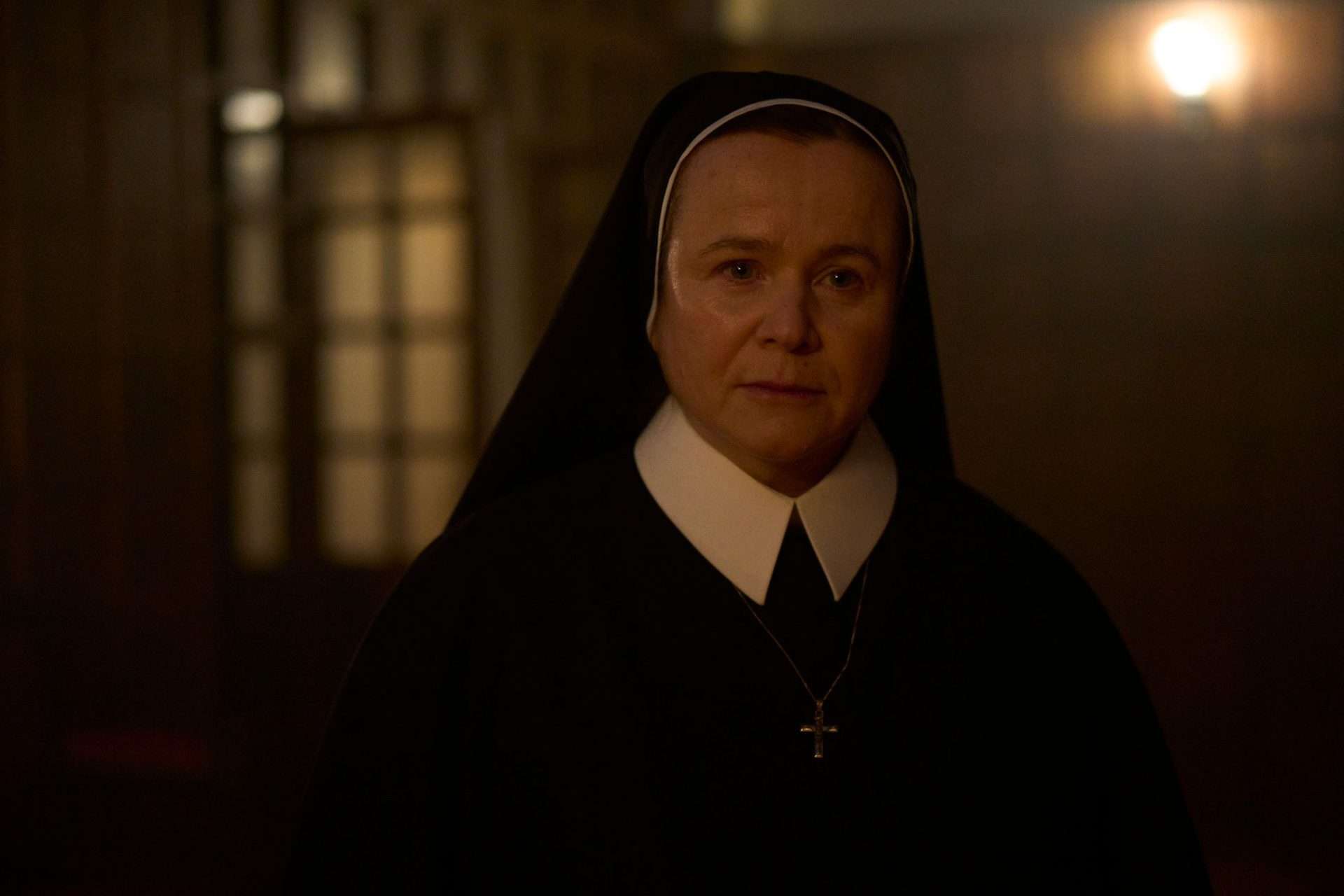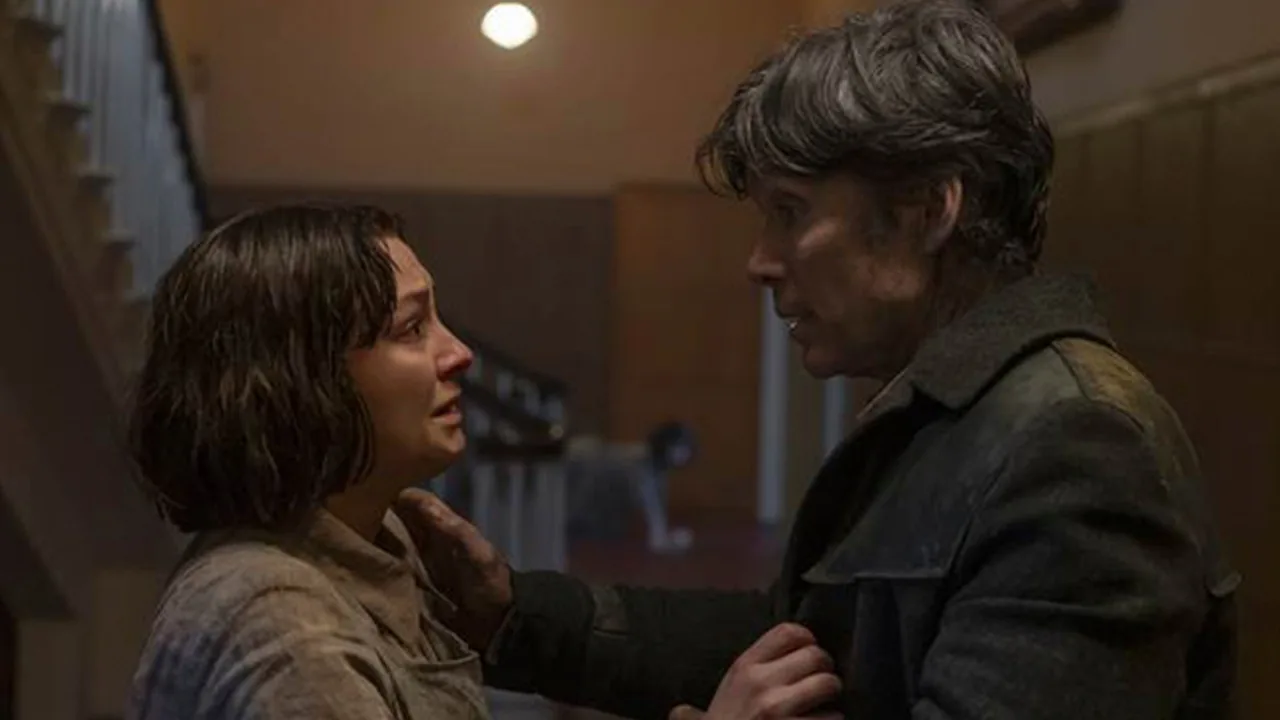“Small Things Like These” (2024) is a film that is intended to disturb, but not because of what it shows. Tim Mielants’ latest historical drama is not the first film about the infamous Magdalene Laundries in Ireland, as it was a major subject in Peter Mullan’s underrated drama “The Magdalene Sisters” and the Oscar-nominated Judi Dench vehicle “Philomena.” However, “Small Things Like These” avoids being derivative (or too self-important, for that matter) by presenting its exploration of the controversy as a mystery of sorts. The sad fact is that the abuse and enslavement of thousands of young women in Ireland is still a relatively unknown moment in history and one that has certainly been forgotten when compared to other religious controversies.
“Small Things Like These” is perhaps more ambitious in the fact that it doesn’t attempt to summarize the extent of this generational abuse into a broadly accessible tragedy. It is a rather straightforward drama about a single man wrestling with the burden of knowledge. Exploring a subject that was so inherently damaging to female autonomy from a male perspective may feel exploitative, but “Small Things Like These” doesn’t offer anyone an excuse, nor is it interested in wrapping anything up in a neat bow. The pacing is slow to the point that it can occasionally be laborious, but “Small Things Like These” wrestles with such identifiable topics of guilt and escalation that it’s easy to get swept up in its modest ambitions.
Based on the acclaimed historical fiction novel of the same name by Claire Keegan, “Small Things Like These” stars newly-minted Academy Award winner Cillian Murphy as the coal merchant Bill Furlong, who lives a modest life with his family in Ireland in 1985. Bill is the type of hardworking, blue-collar man who can work hours of hard labor and return home to care for his children, and never seems to complain about the raw deal that life has offered him.
However, Bill’s supposed isolation breaks when he comes across evidence that a young girl, Sarah (Zara Devlin), has been trapped out in the cold by a Magdalene laundry, which serves as an asylum for various young women who were deemed to be mentally unwell or sexually promiscuous. In reality, many of these women were either unwed, pregnant or simply did not have a support system to provide for them.

Murphy is arguably one of the most quietly expressive actors of his generation; whether it’s the moral reckoning of a tortured genius in “Oppenheimer” or the confluence of criminal deeds and familial loyalties in “Peaky Blinders,” Murphy is so careful in his delivery that each line he delivers hold great weight. It’s befitting for a character like Bill, who seems only to express himself through words when no other options are afforded to him.
Murphy perfectly captures the burden that Bill faces as he considers whether to come forward with the information that he learned. Speaking out could potentially cause harm to Sarah, and could even find its way back to Bill’s family. However, the deep fear that lies within Murphy’s pained expressions suggests that at his core, Bill truly does not want to know what has secretly been going on behind closed doors in the community he has always known as home.
Bill could have easily felt like an “audience avatar” at points, who is only inserted within the narrative so that the viewer can connect with a character that is understanding the full extent of the situation at the same time that they are. However, “Small Things Like These” gets around these issues by exploring how Bill is personally connected to what is going on in the Magdalene asylums. It’s not a coincidence that the name Sarah also belongs to his mother (played wonderfully by Agnes O’Casey in flashbacks), who gave birth to him when she was an unmarried teenager and was subsequently cast out by her family.
Beyond giving reasons to understand why Bill is so protective over his own family’s privacy, these flashback scenes explore the generational impact that the Magdalene asylums have had. As easy as it may have been to turn a cold shoulder and ignore what was happening, the lasting crimes that the Church committed ended up infecting all corners of Irish society.

“Small Things Like These” is in many ways indebted to the classic conspiracy thrillers of the New Hollywood generation, such as “All The President’s Men” or “The Parallax View,” as it points its blame on a system of complicity instead of just one villain. If there is a true antagonist in the film, it’s Emily Watson as the cold-hearted Sister Mary, who serves as the Mother Superior of the local convent. Mary is the perfect antithesis to Bill, as she urges for the retention of the status quo, offering simple explanations for everything he has perceived as dangerous.
It’s evident that Bill wants nothing more than to accept her at her word, as he does seem to be searching for an authoritative voice to take over. However, Watson adds a demented sense of pretension that justifies Bill’s continued efforts to look deeper into the controversy. Within a film that is mostly told with hushed tones and long glances, it was critical for a performer as powerful as Watson to serve as a fixed point of conflict.
The most controversial choice “Small Things Like These” makes is to leave the story somewhat incomplete; the Magdalene asylums were not eradicated overnight, and to suggest that the revelation of the abuse led to an immediate reckoning would simply not be accurate. Mielants may have put too fine a point on this concept, but it was perhaps a necessary decision in order to avoid transforming Bill into a savior.
“Small Things Like These” is almost aggressively bleak, as it does not even allow moments of beauty into the observational moments examining average life in Bill’s community. It’s a film intended to start a conversation that it doesn’t finish, but the sheer power of Murphy’s work does make the case for it existing as a straightforward narrative. “Purposefully frustrating” may seem like an odd compliment, but “Small Things Like These” took the only route possible for the subject it selected.



![Soulmates [2021] Review : Meet-cute romance tests life-long friendship patterns in this dull, overlong misfire](https://79468c92.delivery.rocketcdn.me/wp-content/uploads/2021/11/Soulmates_0467-1-768x512.jpg)
![Bacurau [2019]: ‘Cannes’ Review – “Seven Samurai” with a South American Charm](https://79468c92.delivery.rocketcdn.me/wp-content/uploads/2019/05/Bacurau-Cannes-Highonfilms-768x437.jpeg)



